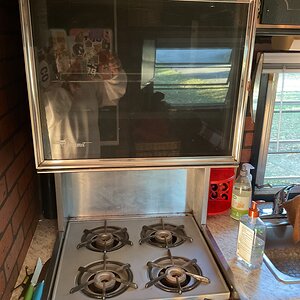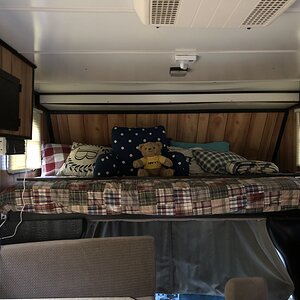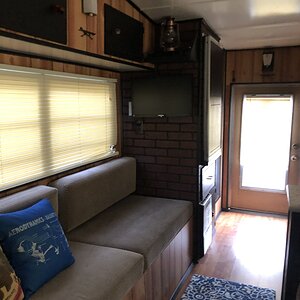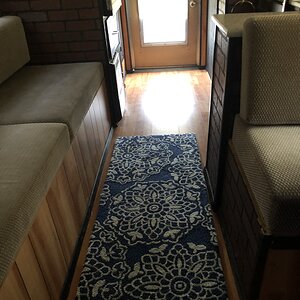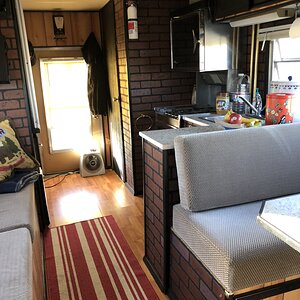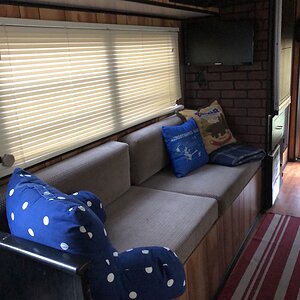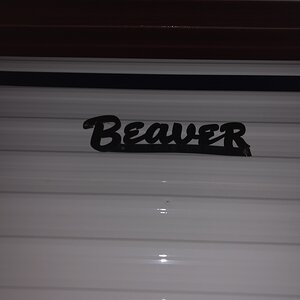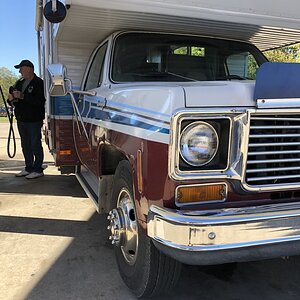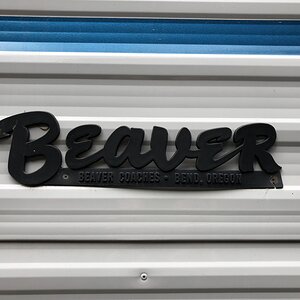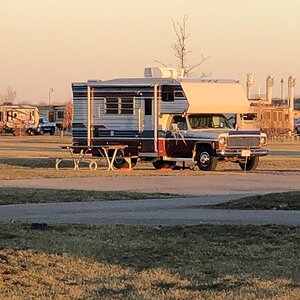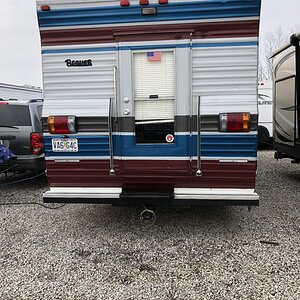Don't sweat it. You will add and toss many things over time.
A small basic tool kit, gorilla tape, replacement bulbs for exterior running lights.
Hose washers, not the cheap vinyl ones. These are good and 100 lasts me a loooong time Amazon product ASIN B0B8V3L1J7
Water hoses are best in 25 ft lengths. You can always connect two or more together. I like to buy a 100 ft hose and use hose menders to make several shorter hoses. I use quick connects to put them together. I try of have one 10 to 15 ft hose.
Two 10 ft sewer hoses are better than one 20 ft sewer hose. You can always connect two or more together.
Water filters (I prefer the "whole house" style in the 10" canisters)
There is a Walmart in almost every town in the US. It's amazing what you can buy at a Walmart.
You need a little electrical outlet tester and know how to use it. A cheapie from Harbor Freight will let you know if an outlet is mis-wired. And if you lose it, it's not expensive to replace. You will need an adapter just to plug the tester into for the 30 amp outlet and the 50 amp outlet. You want to test before you plug your RV in. Electrical Receptacle Tester with GFCI Diagnosis
Know how to test an outlet. Here's two sites.

 www.rvtravel.com
www.rvtravel.com
You need an electrical adapter, depending on what your RV is rated for. A 50 amp RV needs to be able to plug into a 30 amp outlet. A 30 amp RV needs to be able to plug into a 50 amp outlet.
You need a cheapie garden hose splitter or "wye" along with a cheapie pressure regulator to use on the sites hose pipe (you will eventually leave it behind) . Save the expensive ones for a permanent connection on your RV. The cheapie is just to save your water hose.
You need a sewer collar. You often get them with a sewer hose kit.
Some parks/campgrounds do not allow sewer hoses to lay on the ground. You may want to pick up a sewer hose support.
If you have a decently sized fresh tank, you do not need to hook up to the potable water every night when traveling. You also do not need to dump your waste tanks every night either.
All the tools that have been listed in previous posts.... would you know what to do with them?
A small basic tool kit, gorilla tape, replacement bulbs for exterior running lights.
Hose washers, not the cheap vinyl ones. These are good and 100 lasts me a loooong time Amazon product ASIN B0B8V3L1J7
Water hoses are best in 25 ft lengths. You can always connect two or more together. I like to buy a 100 ft hose and use hose menders to make several shorter hoses. I use quick connects to put them together. I try of have one 10 to 15 ft hose.
Two 10 ft sewer hoses are better than one 20 ft sewer hose. You can always connect two or more together.
Water filters (I prefer the "whole house" style in the 10" canisters)
There is a Walmart in almost every town in the US. It's amazing what you can buy at a Walmart.
You need a little electrical outlet tester and know how to use it. A cheapie from Harbor Freight will let you know if an outlet is mis-wired. And if you lose it, it's not expensive to replace. You will need an adapter just to plug the tester into for the 30 amp outlet and the 50 amp outlet. You want to test before you plug your RV in. Electrical Receptacle Tester with GFCI Diagnosis
Know how to test an outlet. Here's two sites.

RVelectricity – Quick 30-amp outlet tester for cheap
By Mike Sokol Dear Readers, You may have noticed that I launched my RVelectricity Webcasts this week, and have been creating all sorts of YouTube videos
You need an electrical adapter, depending on what your RV is rated for. A 50 amp RV needs to be able to plug into a 30 amp outlet. A 30 amp RV needs to be able to plug into a 50 amp outlet.
You need a cheapie garden hose splitter or "wye" along with a cheapie pressure regulator to use on the sites hose pipe (you will eventually leave it behind) . Save the expensive ones for a permanent connection on your RV. The cheapie is just to save your water hose.
You need a sewer collar. You often get them with a sewer hose kit.
Some parks/campgrounds do not allow sewer hoses to lay on the ground. You may want to pick up a sewer hose support.
If you have a decently sized fresh tank, you do not need to hook up to the potable water every night when traveling. You also do not need to dump your waste tanks every night either.
All the tools that have been listed in previous posts.... would you know what to do with them?

